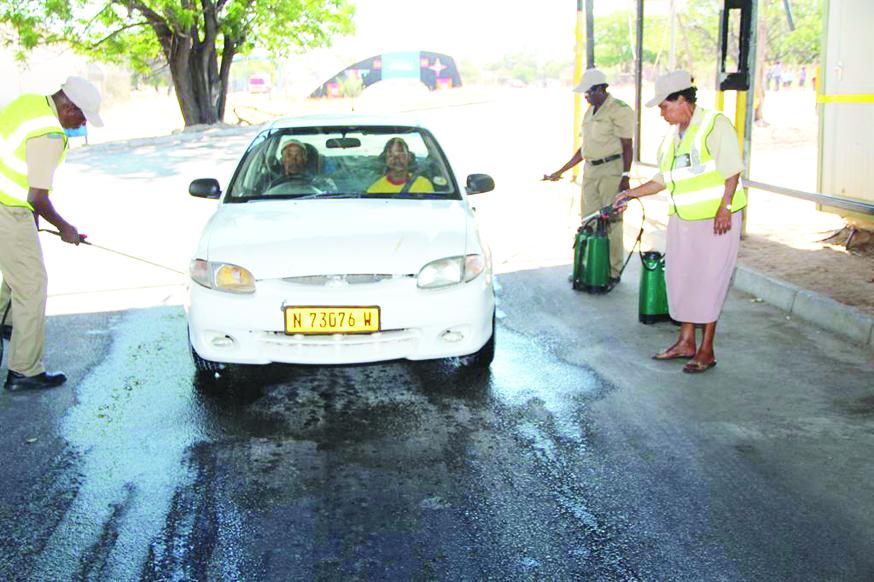
2023, the Year of Revival

By Josef Kefas Sheehama.
This time of year is always a welcome opportunity to reflect on what is most important seeing that the President, His Excellency Dr Hage Geingob, has declared 2023 “the Year of Revival”.
What do His Excellency mean by “the Year of Revival”?
Nothing more or less than the profound right of all people to live their lives in accordance with the decrees of their own conscience. It is a heartfelt return to God and His commandments. As stipulated by the Constitution of Namibia, Namibia is a Secular State which means that the government is neutral in religious matters and is neither a proponent nor an opponent of any religion. The constitution allows for freedom of religion, and the government generally respects this right.
Therefore, in this context of diversity and individuality of wholesome intentions, Geingob means renewed hope and optimism. It reinforces the relevance of performing certain modes of anticipatory exercises to revive our economy. The radical constructive and critical-reflective character in the dynamics of inclusive scrutiny and cooperation is all about the plausibility and desirability of the outcome of envisioned or created futures.
Light at the end of the tunnel.
The New Year brings positive news for Namibians as fuel prices were slashed. The diesel price decreased by N$2.20 per litre and the petrol price by N$1.80. These reductions are certainly good news for all consumers and signal a positive start to fuel pricing for the New Year.
At the same time the President outlined economic rescue measures to revive the country’s ailing economy. This collective attitude is no empty metaphor. It is the attitude which now guides the behaviour of those cabinet members every time they are acting in their official capacity.
Headwinds.
Governments are raising fears that a new and potentially more dangerous COVID-19 variant will emerge in China. Many countries are monitoring the situation in China to implement certain measures for people travelling from China. Our Ministry of Health and Social Services has alerted the regions to increase Covid-19 testing due to an increase in the number of cases. Furthermore, inflationary pressures have intensified, which keep escalating food prices.
We need to understand that the risks to sustain the recovery are mostly external. The economy continues to face structural challenges such as chronic high inflation, unemployment; high levels of informality, a huge competitiveness gap, weak corporate governance institutions, a challenging business environment, high levels of indebtedness, high inequalities, high levels of food insecurity; and high levels of poverty. The annual inflation rate increased to 7% in November of 2022, compared to 4.10% in the corresponding period of 2021. South African annual inflation rate in October 2022 was 7.6%, while in Botswana it was 13.1%. In the US, the inflation rate was 7.7%, in the United Kingdom 11.1% and in the European Union 11.5%.
Therefore, 2023 will not be a walk in the park as it will present its own challenges. The recent floods in Windhoek are estimated to cost insurance companies close to N$1.2 billion resulting from damages to physical property, loss of income, loss of documentation, damaged IT infrastructure, and damage to machinery and equipment.
It is very interesting to witness the evolution of business interruption cover and how courts seem to be broadening their interpretation of these policies as more and more non-physical property losses become prevalent. But it remains a necessary survival tactic as it insures a business against loss of revenue and helps it to continue to pay overheads and expenses during a period of downtime. The lack of definite and comprehensive legal regulatory framework in the insurance industry is thus, not unconnected to the dearth of BI insurance in Namibia.
In a world of growing complexity and the interrelated nature of risks, no company can rest on its laurels in terms of its Business Interruption recovery strategy. Continuity plans should always be ongoing works of improvement and constant risk mitigation. Therefore, a fortified and robust business continuity plan will boost a company’s resilience in the event of a Business Interruption.
Tailwinds.
The government should not focus only on increasing GDP but also on improving the quality of life for ordinary Namibians. It is therefore of vital importance to restructure the economy so that its wealth is shared by all people, to ensure that everybody enjoys a decent and rising standard of living.
Education Reform.
The Ministry of Education, Arts and Culture released disappointing grade 11 and 12 examination results of which approximately 75% learners fail to qualify for university admission. Blaming and shaming Namibia’s schoolteachers will do nothing to heal the country’s dysfunctional education system. The education minister should understand that education is a collective efforts.
We are failing our children. As an independent Economic and Business Researcher, a random sampling done from various schools across the country reveals that some schools are resistant to change, and teachers who are educated about learning trends may not receive funding or support to adopt them.
Solution: In order to build more comprehensive educational systems that will allow dealing with crises such as this one, it is essential to modernize the collection and analysis of information and to make these systems more efficient. The minister must now produce detailed guidance for schools and provide support to assist learners, particularly the disadvantaged. The failure of our education system can’t be blamed on one group of individuals.
Clearly the task ahead will not be an easy one, but will require serious efforts from government, the business sector and unions. In my opinion, it is critical that a stakeholders’ engagement be held in order for all of us to pull in one direction.
Increasing investments in rural infrastructure.
We must make exceptional efforts to strengthen the Micro and SME sector. SMEs mostly do not receive government services. They are left to access them with their own methods. SMEs have the potential to create jobs and boost entrepreneurship but to realise this potential, small businesses across the whole country must embrace technology. We haven’t really done this before, but we can do it.
In conclusion, Namibia exhibits a key competitive edge that can be leveraged as focus areas for economic growth and diversification. The continued growth and diversification of knowledge-based industries is a significant area of focus for growing and diversifying the economy.
We must boldly implement the proposed social, economic and educational reforms to build a prosperous and productive Namibia for the next generation.
Finally, His Excellency Dr Geingob asserted, “Play the ball not the man”.













































